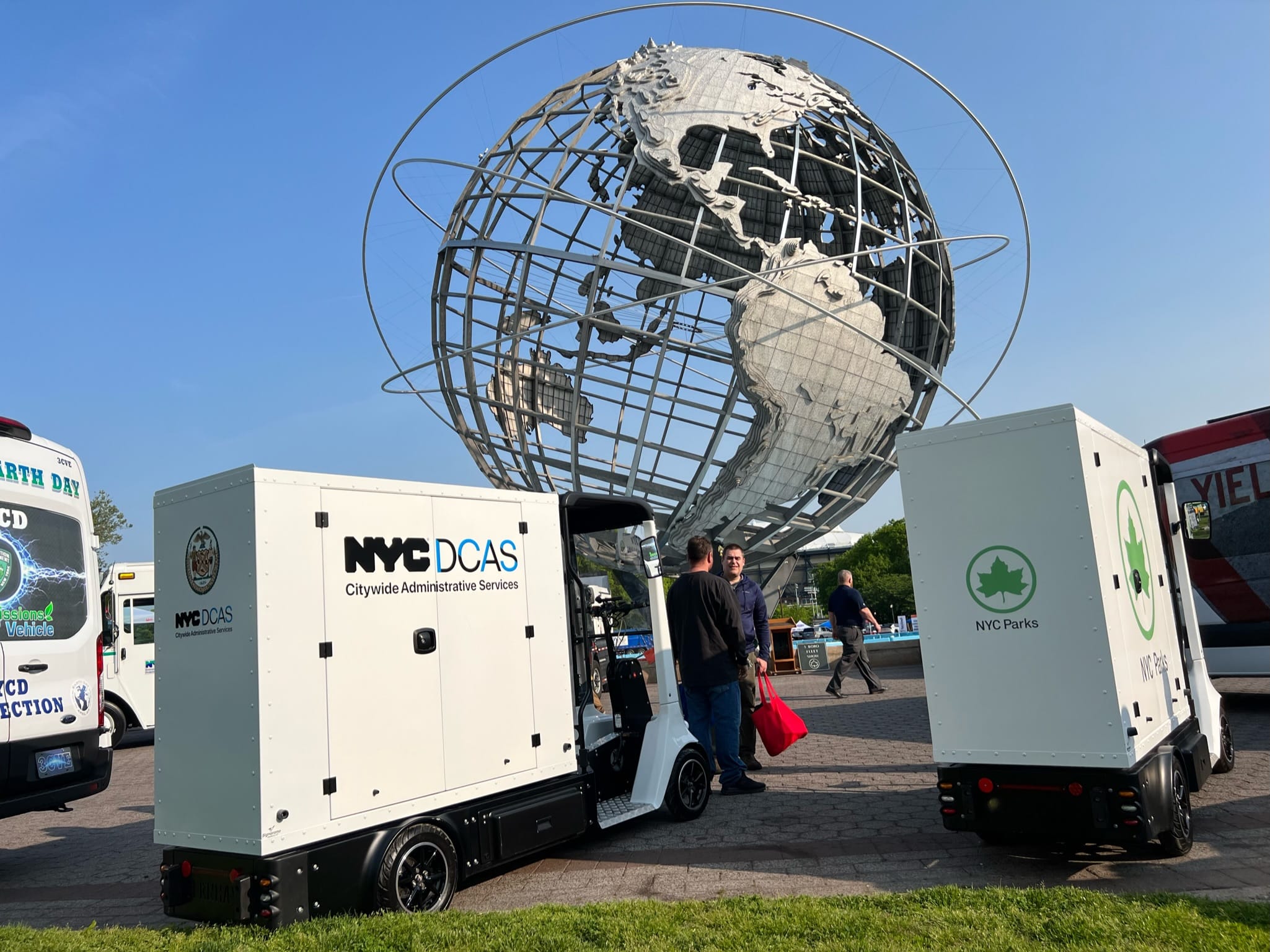The Last-Mile Delivery Challenge
Last-mile delivery refers to the final step of the delivery process, where goods are transported from a distribution hub to the customer’s doorstep. Despite its short distance, it is often the most expensive part of the logistics chain, accounting for up to 53% of the total shipping costs. The reasons for this high cost are numerous: traffic congestion, inefficient routing, and the need for timely deliveries.
For large corporations, especially those operating in urban areas, these challenges are compounded by environmental concerns and the need for sustainability. The rise of e-commerce has only increased the volume of last-mile deliveries, putting more pressure on companies to find cost-effective and environmentally friendly solutions.
Enter the eQuad: A Game-Changer in Last-Mile Delivery
The eQuad is an electrically assisted quadricycle designed by Fernhay to address these very challenges. It is compact, energy-efficient, and capable of navigating congested urban environments with ease. Unlike traditional delivery vans, the eQuad can use bike lanes, avoid traffic jams, and access areas that are off-limits to larger vehicles. This flexibility significantly reduces delivery times and costs.
Key Features of the eQuad:
- Electric-Assisted Pedal Power: The eQuad is powered by a combination of human pedalling and electric assistance, making it a zero-emission vehicle. This not only helps companies reduce their carbon footprint but also positions them as leaders in sustainable practices.
- Compact Design: With its small footprint, the eQuad can easily manoeuvre through tight city streets and even pedestrian zones. This ability to access areas where traditional vehicles cannot go increases delivery efficiency.
- Cost-Effective: The eQuad’s energy consumption is minimal compared to fuel-powered vehicles. Additionally, its maintenance costs are lower, and it requires no parking fees, contributing to significant savings.
Financial Benefits for Big Corporations
For large corporations, the adoption of eQuad deliveries can translate into substantial financial benefits. Here’s how:
1. Reduced Operating Costs
Operating traditional delivery vans in urban areas can be costly, with expenses related to fuel, parking, and vehicle maintenance. The eQuad, being electric and compact, drastically reduces these costs. Moreover, its ability to bypass traffic reduces the time spent on deliveries, leading to lower labor costs. Over time, these savings can accumulate, creating a significant reduction in overall logistics expenses.
2. Lower Environmental Compliance Costs
Many cities around the world are implementing stringent environmental regulations, including low-emission zones where only electric or ultra-low emission vehicles are allowed. Non-compliance can result in hefty fines. By using eQuads, corporations can avoid these penalties and demonstrate their commitment to environmental sustainability. Additionally, the adoption of such vehicles can align with corporate social responsibility goals, further enhancing the company’s reputation.
3. Increased Delivery Efficiency
The eQuad’s ability to navigate congested areas and take advantage of bike lanes means faster deliveries. This increased efficiency can lead to more deliveries per day, improving overall productivity. For corporations, this means a higher return on investment in their delivery operations. As urban areas continue to grow and traffic conditions worsen, the advantages of using agile, electric-assisted vehicles like the eQuad will only become more pronounced.
4. Enhanced Brand Reputation
Consumers today are increasingly eco-conscious and prefer brands that demonstrate a commitment to sustainability. By adopting eQuad deliveries, companies can enhance their brand image, attract environmentally conscious customers, and potentially increase market share. This shift towards greener practices not only meets current consumer expectations but also prepares businesses for future market trends where sustainability will be a key differentiator.
The Future of Last-Mile Delivery
The adoption of eQuad deliveries represents a significant shift in how corporations approach last-mile logistics. As urban areas continue to grow and environmental regulations become stricter, the need for innovative, sustainable delivery solutions will only increase. The eQuad is poised to become a cornerstone of this new era in logistics, offering a scalable solution that meets the demands of both businesses and the environment.
Furthermore, the integration of smart technologies with eQuad could provide even greater efficiencies. Real-time data analytics, optimised routing, and fleet management systems could be employed alongside eQuad vehicles, maximising their utility and ensuring that deliveries are not only faster but also smarter.
Conclusion: A Win-Win Solution
In conclusion, the eQuad by Fernhay offers a transformative approach to last-mile delivery, providing a solution that is not only cost-effective but also environmentally sustainable. For big corporations, the potential savings in operating costs, compliance fees, and increased efficiency could amount to billions of dollars annually. Moreover, the positive impact on brand reputation and customer loyalty makes the eQuad an investment that can pay dividends far beyond the balance sheet.
Fernhay’s eQuad is more than just a delivery vehicle; it is a smart, sustainable, and financially sound solution that can help corporations thrive in a rapidly changing world.

